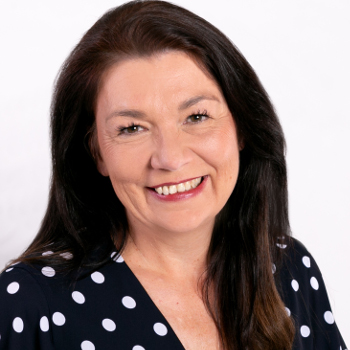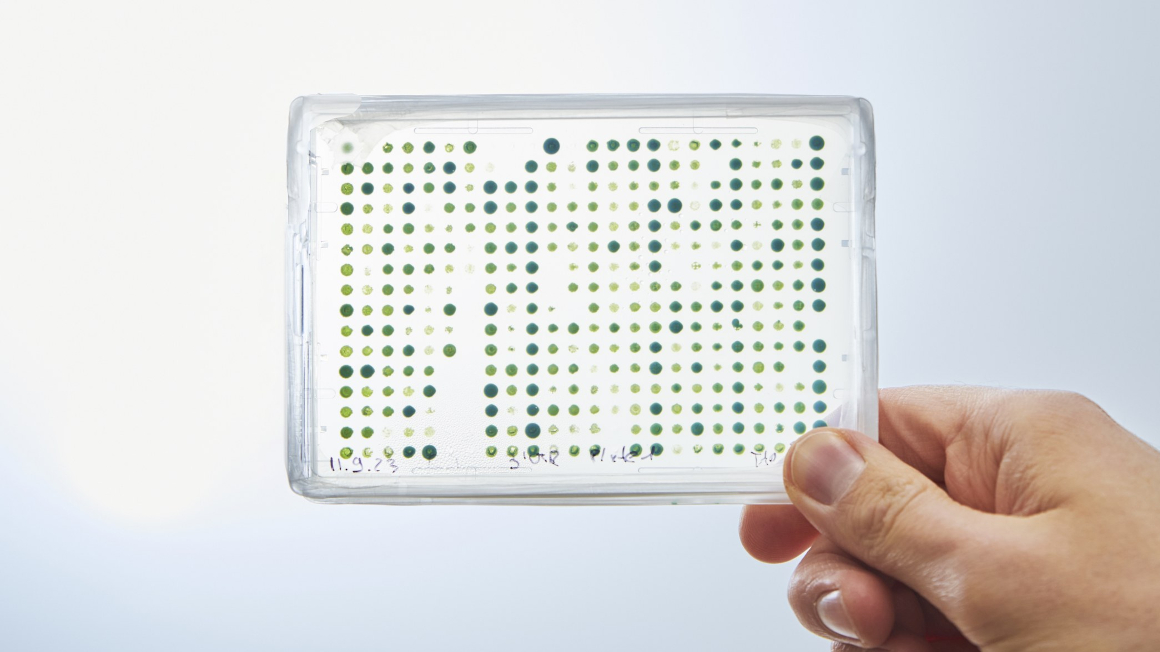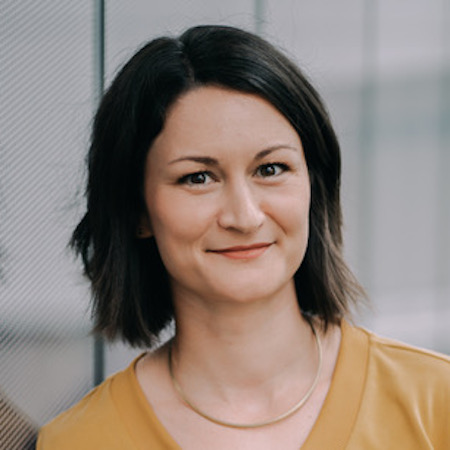Networking for the bioeconomy
Birgit LewandowskiProfession:
Landscape Ecologist
Position:
Division Manager Biotechnology at FRITZMEIER Umwelttechnik GmbH & Co. KG and member of the board of the Förderverein Industrielle Biotechnologie Bayern e.V. (IBB)

Profession:
Landscape Ecologist
Position:
Division Manager Biotechnology at FRITZMEIER Umwelttechnik GmbH & Co. KG and member of the board of the Förderverein Industrielle Biotechnologie Bayern e.V. (IBB)

For Birgit Lewandowski, uniting technology and sustainability is a matter close to her heart. On the board of the Biotechnologie-Förderverein IBB, the landscape ecologist with Viennese charm wants to establish a strong network for the bioeconomy.
The emergence of the Green movement in the 1980s was formative for Birgit Lewandowski. The plans for the construction of a hydroelectric power plant on the Danube near Vienna were a wake-up call for the native Austrian and at the same time set the course for the future. Having grown up in the countryside in the green belt of Vienna, the preservation of the Hainburger Au was close to her heart. Even though the protests of the environmental movement were successful and the Au was ultimately spared - for the young woman from Wiener Neustadt, this was an example of how things should not be. "At that time, the discussion did not take place on a factual level. That was decisive for me: I wanted to know technically what was going on and how to deal with such problems."
Convincing with expertise and finding consensus - that's the way Birgit Lewandowski has been tackling problems for 30 years now. With her passion for networking, the 52-year-old now wants to further advance the bioeconomy in Germany. She has been a board member of the Förderverein Industrielle Biotechnologie Bayern e.V. (IBB; Bavarian Industrial Biotechnology Promotion Association) since May last year. "I believe that you won't be successful in the bioeconomy as a lone wolf, but only together," Lewandowski emphasizes.
Combining technology and ecology
As a practical thinker with a love of the environment, it was clear to the Austrian that she would choose a course of study that combined technology and ecology. She went to the University of Natural Resources and Applied Life Sciences (BOKU) in Vienna and studied landscape ecology and landscape design until 1993. After graduation, the graduate engineer started as a contract assistant at BOKU's Institute of Hydrobiology and Hydraulic Engineering.
Keeping environmental pollution within limits
Her first assignment: the environmental impact assessment for the Freudenau power plant near Vienna. It was the first of several assessments Lewandowski prepared in Austria, first as a university employee, later as a freelancer, until she moved to Germany in 2003. In addition to environmental impact assessments, she also worked on water quality. In the case of the Vienna power plant, Lewandowski was able to ensure that environmental impacts were limited. "The flow velocity was kept high so that good dynamics were maintained. This is because when a river is dammed, the flow velocity decreases, the soil changes, and so do the environmental conditions for the entire habitat," she explains. But working as a surveyor was only one side of the freelancer's life. On behalf of the Austrian Academy of Sciences, she gave courses in stream ecology to foreign students and supervised them in their theses. Her students came mainly from Africa, Asia, but also from South America.
Targeting cell cultures
Her life changed when she moved to Munich with her German husband in 2003. After further training in the fields of biotechnology, molecular biology and cell culture, the Austrian brought with her the skills to enter the burgeoning biotechnology industry in Bavaria. "It was exciting at the time - but I was never the scientist who needed to know the third digit after the decimal point," Lewandowski admits. Her work at the Institute for Applied Cell Culture in Munich was therefore short-lived, as her passion was for practical applications. However, large companies were never an option, Lewandowski says. "For me, it was important at that time to work in an SME." That's how Lewandowski ended up moving from red biotechnology to inocre, now Fritzmeier Umwelttechnik, in 2004.
At the medium-sized company, she was able to quickly establish herself and pursue her real passions for technology and ecology. One focus of the company is the development of products based on microorganisms, such as for plant cultivation. With "Biotaurus," for example, she developed a product for the trade that uses microbes to make nutrients more available to plants. Today, Lewandowski rarely wears her lab coat. As technical and scientific manager of the biotechnology unit, she is more involved in management tasks and budgeting issues at the company and networks for the bioeconomy.
Advancing the bioeconomy
"Not every company can do everything. To successfully bring new developments to market, you have to use synergies. And IBB has always been the right contact here," says Lewandowski. She has been involved in the association for many years, establishing contacts with partners from research and industry on behalf of the environmental technology company. Among other things, research alliances for the development of biogenic adhesives and for the production of a biobased binder for lubricants, which were financed by the German Federal Ministry of Education and Research, were established in this way.
Communicating scientific results in such a way that they are not only understood in the vacuum of science, but are also received by society, is something Lewandowski intends to continue working towards in the future. Her election as a new board member at IBB once again gives her the chance to actively steer certain things. "It is an opportunity for me to exchange ideas with interesting people in order to advance the bioeconomy. Because I think the bioeconomy needs every effort," says Birgit Lewandowski, emphasizing, "When something concerns me, I fight like a mother lion."
Author: Beatrix Boldt


